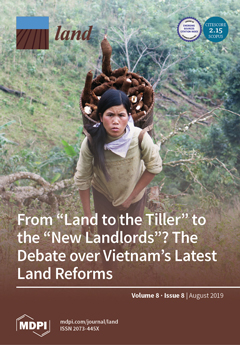Resource information
In Colombia, right-wing leadership returned to power after winning the presidential elections in 2018 in a campaign in which they opposed the previous government, primarily because of the negotiations and peacemaking with the FARC-EP (Fuerzas Armadas Revolucionarias de Colombia—Ejército del Pueblo ‘Armed Revolutionary Forces of Colombia—People’s Army’), Colombia’s largest guerrilla organization. Globally, there is a vibrant academic debate about how to characterize the current rise of right-wing populism or authoritarianism, but more profound insights from each country’s situation and its political economy implications are needed. The victory in Colombia was due to numerous factors, including the support from some rural elites who have historically obstructed the enforcement of redistributive land policies. However, the populist aspirations of the right-wing government have been persistently frustrated not only by social unrest and political mobilization but also because of the enforcement of institutions previously incorporated into the country’s political scenario. Specifically, in terms of agrarian political economy, two sets of human rights-oriented institutional changes are relevant regarding this matter: (a) the Land Restitution Law enacted in 2011 and (b) the Comprehensive Rural Reform contained in the Agrarian Chapter of the Peace Agreement between the national government and the FARC-EP in 2016. The purpose of this paper is to ground the ongoing theoretical and political debate about the rise of different forms of populism and right-wing authoritarianism in the current Colombian political context, and its implications on the countryside. The analytical contribution of this paper is twofold: On the one hand, I propose an alternative for explaining the nature of the current political regime in Colombia as right-wing authoritarianism; on the other hand, I analyze some features of such regimes in terms of its disputes with the enforcement of human rights-oriented institutions, that are in force as the result of political processes triggered by peasants’ mobilization.


